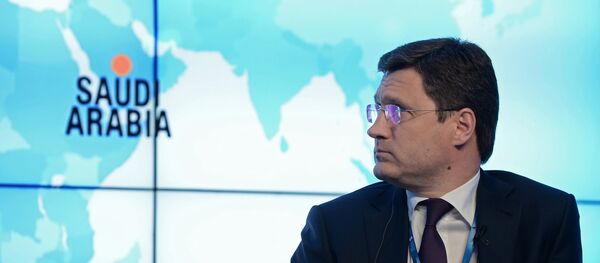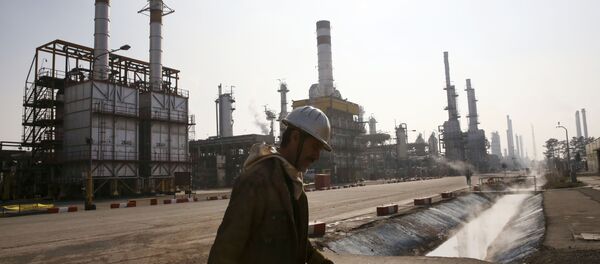Saudi Arabia cited Iran's absence during the talks as the reason it could not support an output freeze. However, Pletten believes that this is only an excuse that gives Saudi Arabia an opportunity to act in its own interests.
Pletten views the personality and behavior of Saudi Prince Mohammed bin Salman Al Saud as one of the main factors for the failure of the Doha talks. In her article for the Norwegian newspaper Aftenposten, she referred to a number of financial and Middle East experts who named Prince Salman, as one of the reasons for the sudden failure of negotiations.
"He is only 30 and is in power just for one year. However, Saudi Arabia's Prince Mohammed bin Salman has been able to establish himself as one of the most powerful people in the world. This weekend he, according to the world's media, personally destroyed the dream of an agreement, which could stabilize oil prices," Pletten wrote for the newspaper.
Similar opinions have also been expressed by a number of analysts. For instance, Financial Times wrote that Sulman "suddenly gained enormous clout after his father's accession to the throne last year, and has moved quickly to consolidate his power."
According to the newspaper, the crown prince who is currently in charge of the Saudi Economic Council pursues a strategy which is mainly driven by political, rather than financial considerations.
"Under his guidance, Saudi Arabia's oil policy appears to be less driven by the price of crude than global politics, particularly Riyadh's bitter rivalry with post-sanctions Tehran. Oil, analysts say, has become a weapon for Saudi Arabia to wield in its proxy war with Iran," the newspaper wrote.
Saudi Arabia warned in advance that it expects concessions on the part of Iran to sign the agreement. The Iranians, for their part, made it clear that they would not cut production until they reach the level their country had before the introduction of sanctions.
Nevertheless, most experts and politicians believed that the agreement would be signed in any case, as had been assured earlier by Saudi Oil Minister Ali al-Naimi. As it turned out, his promise did not really matter, the journalist stressed.
"What happened in Doha was just a theater. The Saudis are absolutely not going to reduce or freeze their oil production. They just wanted to put the blame on Iran," the journalist quoted expert on the Middle East Bruce Riedel as saying.
"I think that oil prices will continue to drop, and, according to the Saudis' plan, harm countries with high production costs," expert on energy issues, John Kilduff said, cited by the newspaper.
Other observers also fear that Prince Salman will try to increase the oil market share of Saudi Arabia, forcing other players out of the game.
"The new economic policy of the Prince is terra incognita for the kingdom and for the all oil producers," Pletten stated.
Earlier in an interview with Bloomberg, Prince Salman said that it doesn't matter to his country how low the oil price would be.





